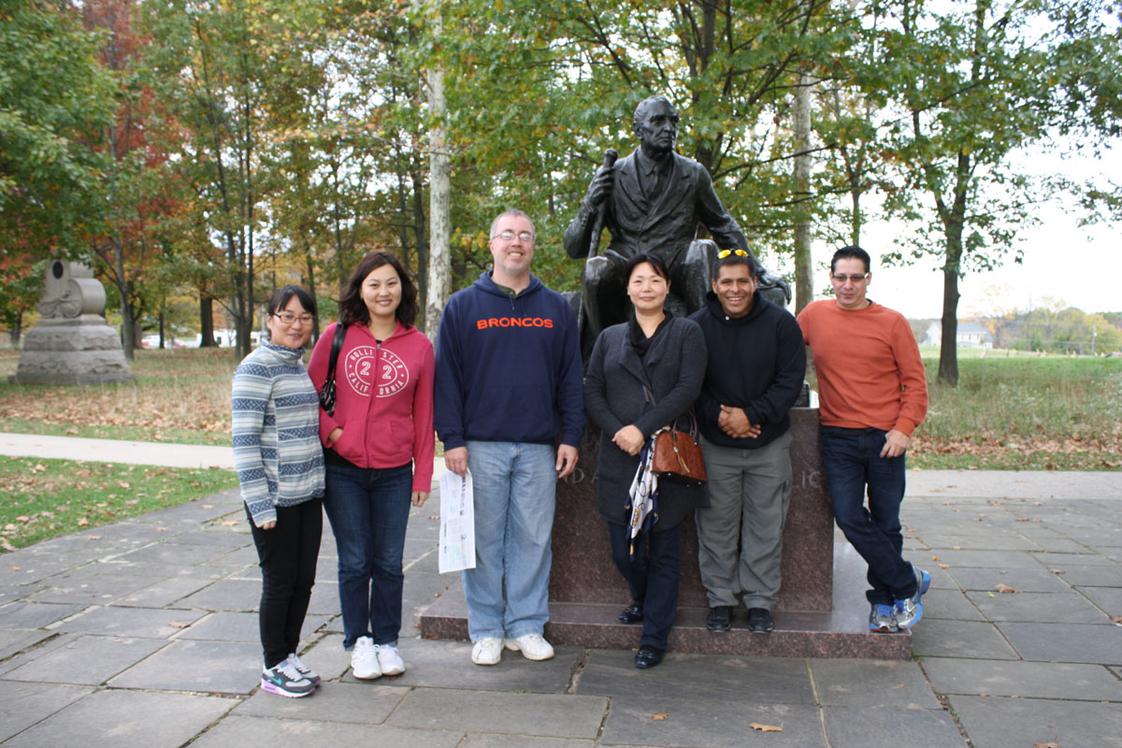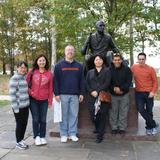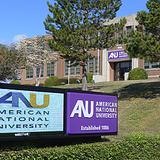- American National University is dedicated to the training and educating of men and women for a full life and a successful career in a number of general and particular fields. The University seeks to give students a broad competency in a field of specialization and an understanding of and respect for their own and others` ideas and thoughts. Graduates of American National University should understand and practice their responsibilities to their families, their fellow men and their communities by becoming effective and contributing citizens.
School Highlights
American National University serves 1,350 students (38% of students are full-time).
The college's student:teacher ratio of 24:1 is higher than the state community college average of 23:1.
Minority enrollment is 61% of the student body (majority Black), which is more than the state average of 53%.
Quick Stats (2025)
- Enrollment: 1,350 students
- Private-state tuition: $11,550
- Student:teacher ratio: 24:1
- Minority enrollment: 61%
- Source: Integrated Postsecondary Education Data System (IPEDS)
Top Rankings
American National University ranks among the top 20% of public schools in Virginia for:
Category
Attribute
School Resources
School Overview
The teacher population of 57 teachers has stayed relatively flat over five years.
American National University
(VA) Community College Avg.
Carnegie Classification
Baccalaureate/Associate's Colleges: Mixed Baccalaureate/Associate's
Associate's--Private For-profit
Institution Level
Four or more years
At least 2 but less than 4 years
Institution Control
Private for-profit
Private, non-profit
Total Faculty
57 staff
129 staff
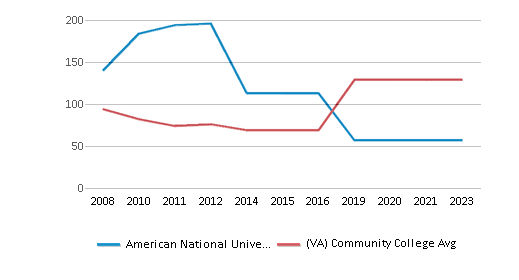
School Calendar
Student Body
The student population of American National University has grown by 68% over five years.
The student:teacher ratio of 24:1 has increased from 16:1 over five years.
The American National University diversity score of 0.69 is less than the state average of 0.71. The school's diversity has declined by 6% over five years.
Total Enrollment
1,350 students
1,350 students
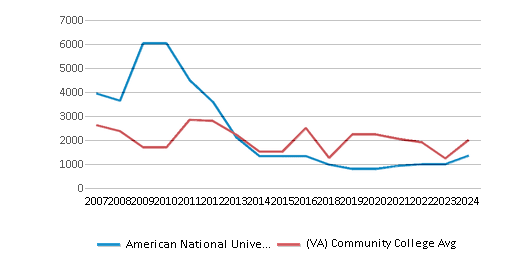
Student : Teacher Ratio
24:1
23:1
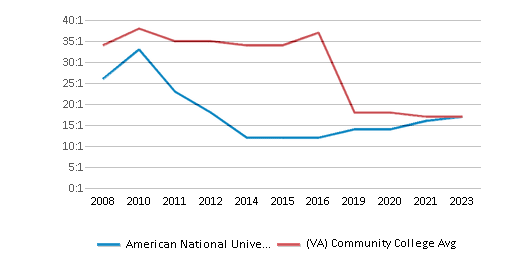
# Full-Time Students
515 students
637 students
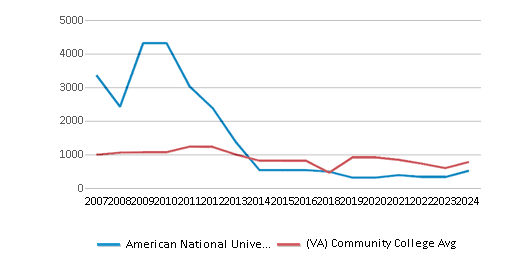
# Part-Time Students
835 students
971 students
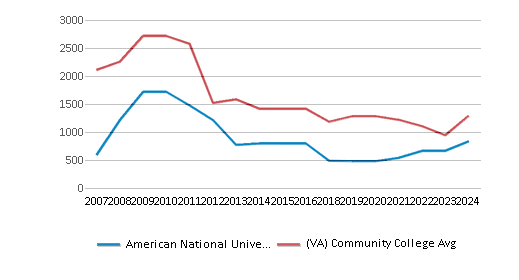
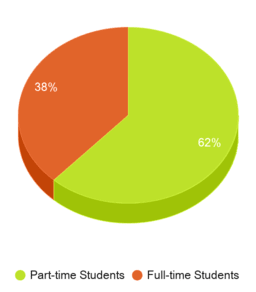
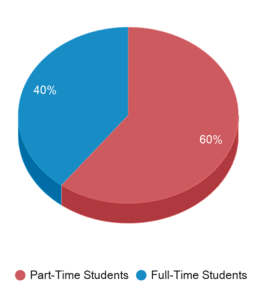
# Enrollment Undergraduate
113 students
314 students
# Full-Time Undergraduate Students
357 students
611 students
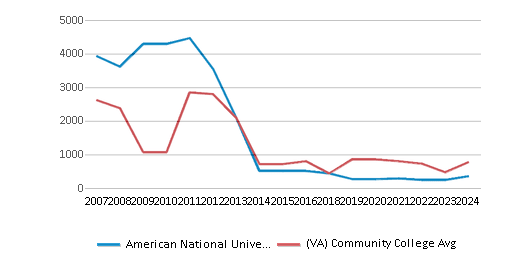
# Full-Time Graduate Students
158 students
158 students
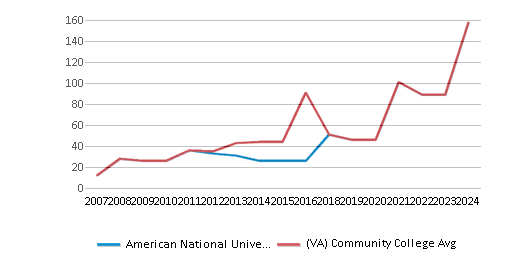
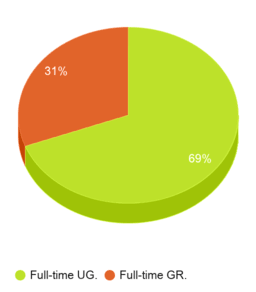
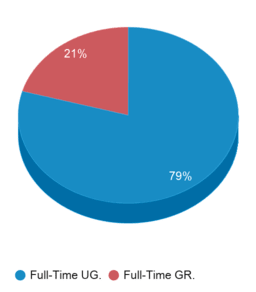
# Part-Time Undergraduate Students
774 students
971 students
# Part-Time Graduate Students
61 students
61 students
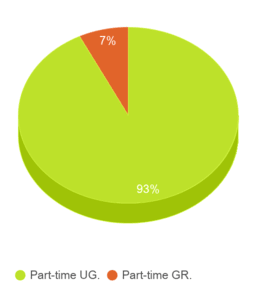
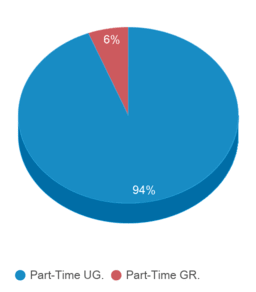
Total Dormitory Capacity
n/a
476 students
% American Indian/Alaskan
2%
n/a
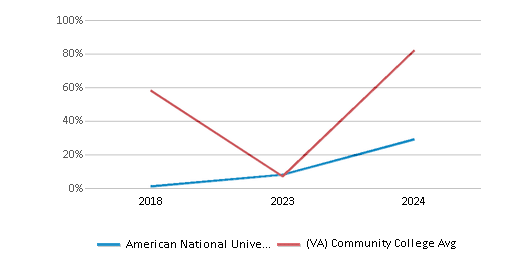
% Asian
12%
8%
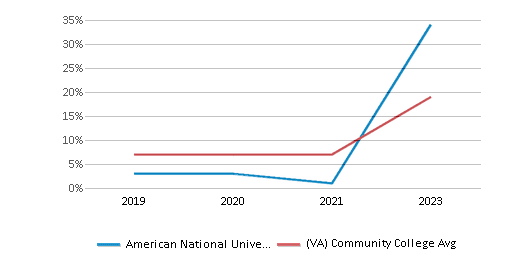
% Hispanic
1%
13%
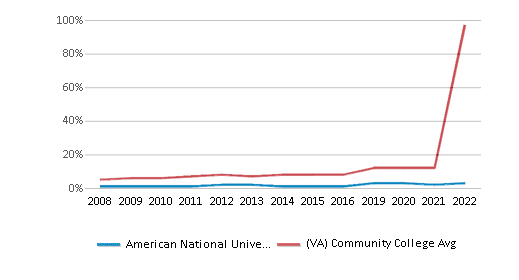
% Black
38%
21%
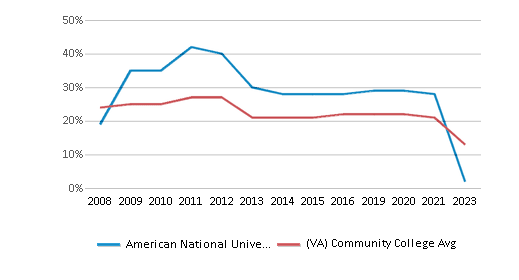
% White
39%
47%
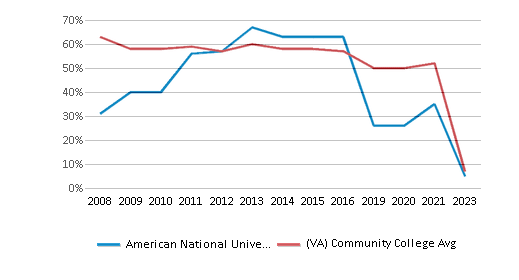
% Hawaiian
1%
n/a
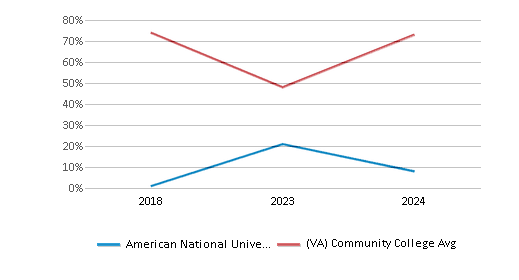
% Two or more races
2%
5%
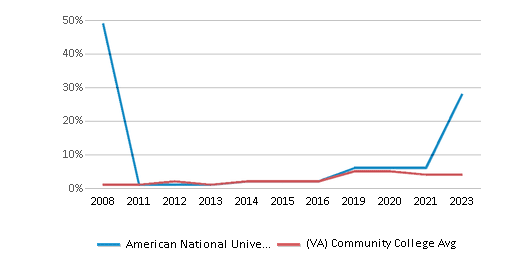
% Non Resident races
1%
2%
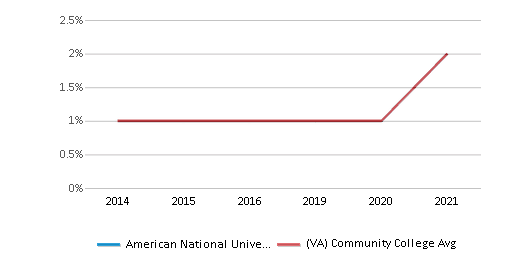
% Unknown races
4%
4%
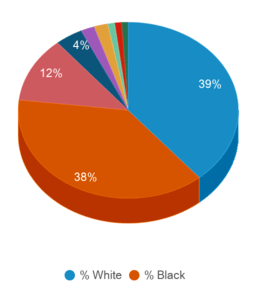
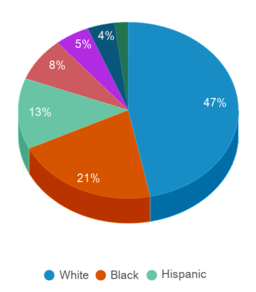
Diversity Score
0.69
0.71
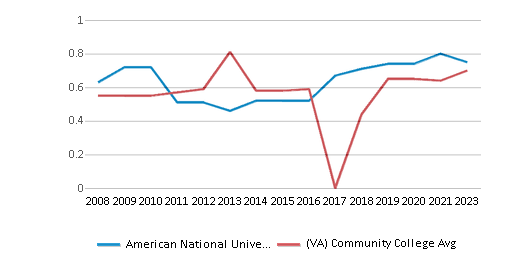
College Completion Rate (Students who graduate in less than 4 years)
n/a
0.4094%
College Completion Rate (Students who graduate in 4 years or more than 4 years)
0.25%
0.264%
Average Graduate Earnings (10 Years)
$23,200
$29,600
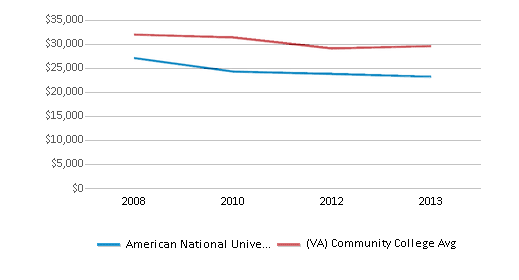
Tuition and Acceptance Rate
The private state tuition of $11,550 is less than the state average of $15,590. The private state tuition has grown by 7% over four years.
Private State Tuition Fees
$11,550
$15,590
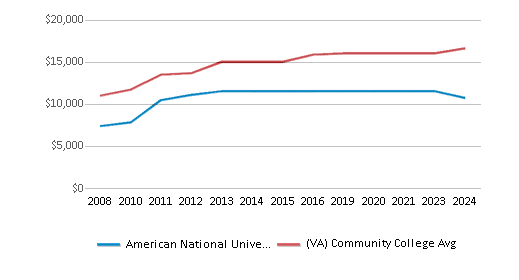
Tuition Notes
Cost savings through
% Students Receiving Some Financial Aid
100%
78%
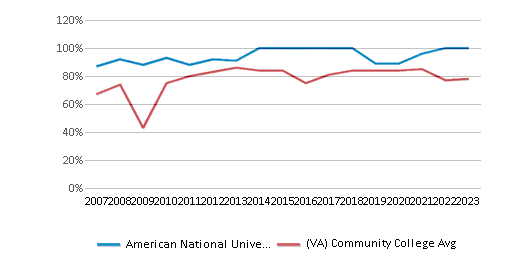
Median Debt for Graduates
$12,502
$10,500
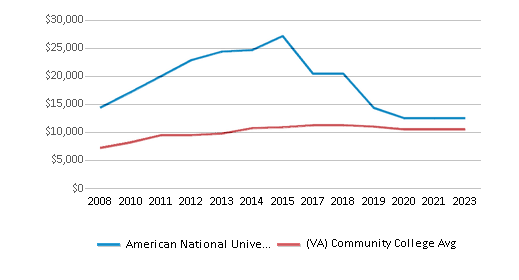
Median Debt for Dropouts
$5,579
$5,500
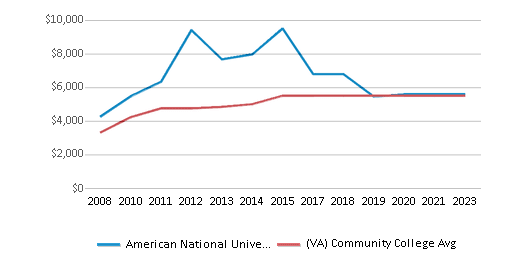
Acceptance Rate
n/a
59%
Source: 2024 (or latest year available) Integrated Postsecondary Education Data System (IPEDS) , School Administrators
School Notes
- Founded in 1886 in Roanoke, Virginia, the college enrolls students at its 30+ campus locations in Virginia, West Virginia, Kentucky, Tennessee, Ohio, and Indiana. As a collegiate institution offering educational credentials from diplomas to master degrees, National strives to develop each student intellectually, culturally and socially. The University/College is interested in each individual becoming proficient in the disciplines necessary for his and her success, with the training necessary to be self-sufficient and enterprising and with the background necessary to be constantly expanding his or her intellectual and cultural horizons. Established in 1886 to provide Roanoke Valley citizens with training for business careers, and continues to build on its reputation among employers throughout Southwest Virginia. It is also the first National campus to offer a Masters course of study and the first to offer a Bachelors. The location is also home to the institution's main administrative offices. The Roanoke Valley Campus offers Master's Degree, Bachelor's Degrees, Associate's Degrees, Diploma Programs and Certification Programs. The institution is accredited by the Accrediting Council for Independent Colleges and Schools to award master's degrees, bachelor's degrees, associate degrees, and diplomas.
Frequently Asked Questions
How much does American National University cost?
American National University's private state tuition is approximately $11,550.
What is American National University's ranking?
American National University ranks among the top 20% of community college in Virginia for: Percent of students receiving financial aid.
Recent Articles

Obtaining Your Bachelor's Degree at a Community College
Explore the evolving landscape of community colleges offering bachelor's degrees, addressing affordability, accessibility, and workforce needs.

A to Z of Community College Certificates and Courses
From business and healthcare to technology and skilled trades, the article showcases the breadth of options available to students seeking to enhance their knowledge, develop new skills, or pursue career advancement.

What is a Community College?
This comprehensive guide explains what a community college is, its history, and its role in higher education. It covers the types of programs offered, differences from four-year colleges, benefits of attending, and important considerations for prospective students, providing valuable insights for those exploring educational options.



